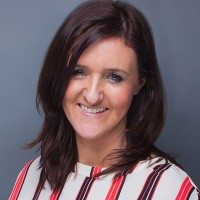
Our own research shows almost half of advisers believe that since the introduction of the Mortgage Credit Directive, second charge loans have become more important to their business. Around three in five brokers say they have seen a rise in applications for second charge loans with 12% saying they have seen a substantial increase since the new rules came into force.
These are all positive signs which point towards gradual growth across the market which is expected to be around 10% in the next two years, according to V Loans’ analysis of the market.
The next six months
In my view, the market is still in transition and in the next six to 12 months, as an industry, there will need to be more clarity on fees and the different routes to providing advice. I believe changes to fee structures will need to be looked at closely but the most important issue will be getting the balance right between fairness of fees and the valuable service provided by master broker firms.
The vast majority of advisers we deal with currently choose to refer their customers to us, and we take full compliance responsibility for the second charge advice. I am certain though, that as more confidence and knowledge is gained about the seconds market by mortgage intermediaries, we will start to see a greater appetite to bring the advice process for seconds in house.
Direct-to-lender or master broker?
Currently brokers who wish to advise have two options – direct to lender or via a master broker partnership.
What route to go down is one of the most important decisions facing brokers but ultimately it will come down to whether a firm is confident that they can deliver quality second charge advice.
With only a handful of second charge lenders offering direct access to their products, retaining independence may be an issue, as this might not give advisers access to a sufficiently broad range of second charge products to maintain independent status.
There are also increased demands on post offer administration to provide their lending partner with the supporting documentation and information to ensure the customer experience is positive and importantly reaches completion stage without unnecessary exposure to non-refundable fees.
An alternative route, which would still enable firms to control the second charge advice process, would be to partner with a specialist second charge master broker. A firm needs to decide if they would benefit from support, in terms of both the sourcing and administration of second charge mortgages. In addition, brokers can outsource the processing of second charges to a master broker firm. Although the rules for first and seconds have been aligned, the processing of these two areas of lending remain fundamentally different.
Whilst the first six months have seen some positive steps there is still some way to go. There are a number of ways that firms can provider a broader range of lending solutions by considering the benefit of a second charge for their clients, and with the increased options to offer seconds and enhanced consumer protections through increased regulation of this market, there has never been a better time to start.












